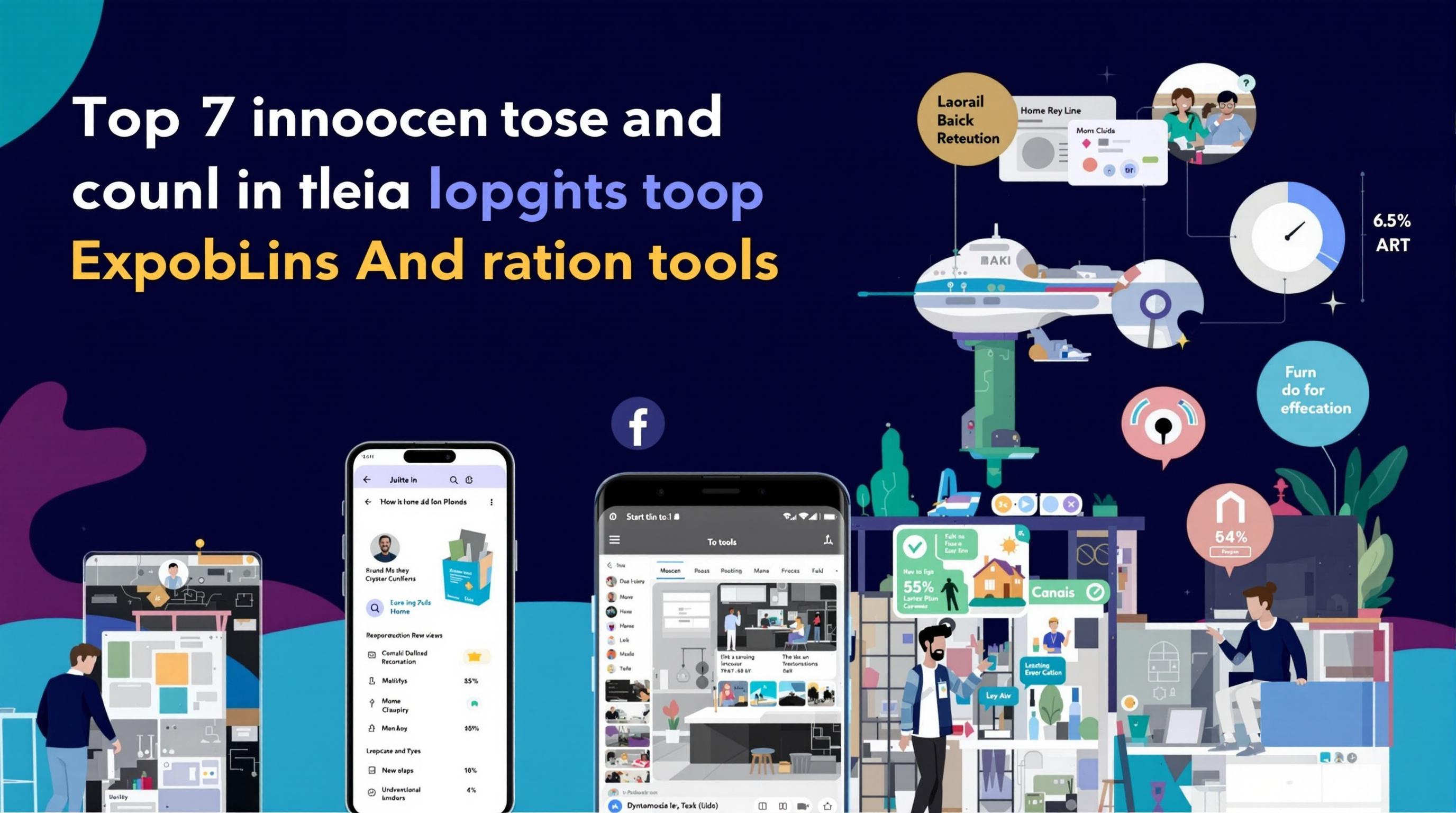Featured Articles
- "From Chaos to Calm: Mastering the Art of Emotional Intelligence in Home Project Management"
- From Chaos to Clarity: Embracing Minimalism in Home Project Management for Stress-Free Renovations
- The Dark Side of Home Project Management: Uncovering the Hidden Stressors You Never Knew Existed
- The Silent Struggles: Mental Health Impacts of Home Project Management You Need to Know About
- Top 7 Innovative Tools Launched Since 2019 Revolutionizing How You Oversee Home Renovations
Top 7 Innovative Tools Launched Since 2019 Revolutionizing How You Oversee Home Renovations
Top 7 Innovative Tools Launched Since 2019 Revolutionizing How You Oversee Home Renovations
Top 7 Innovative Tools Launched Since 2019 Revolutionizing How You Oversee Home Renovations
1. Modsy 3D Interior Design
Modsy has revolutionized home renovation by offering a 3D interior design platform that lets homeowners visualize their spaces before breaking ground. Launched with significant upgrades since 2019, Modsy combines AI with human expertise to create detailed, photorealistic room renderings. This allows users to experiment with furniture, colors, and layouts tailored specifically to their home’s dimensions.
The convenience of Modsy is in its simplicity. Homeowners upload photos and measurements of their space, and within days, receive multiple design concepts. This saves time and eliminates guesswork, reducing costly mistakes that arise from miscommunication with contractors or designers. Because the tool uses real products, clients can also shop directly through the platform, streamlining the entire process.
In a world overwhelmed by endless design ideas, Modsy’s clarity and user-friendly interface help homeowners feel confident and involved at every stage from conception to completion. According to a 2021 article on TechCrunch, Modsy’s AI-enhanced design capabilities have set a new standard for customer empowerment in the home renovation space.
2. Houzz Pro’s Project Management Tools
Since 2019, Houzz Pro has expanded its project management capabilities to better serve homeowners and renovation professionals alike. By integrating scheduling, budgeting, and contractor communication, this all-in-one platform simplifies overseeing complex home renovation projects.
Unlike generic project tools, Houzz Pro specifically addresses the challenges unique to renovations, such as change order tracking, material delivery timelines, and client approvals. Its mobile app allows users to keep tabs on progress from anywhere, reducing last-minute surprises. The platform also supports document storage, ensuring all contracts and permits are easily accessible.
With over 40 million monthly users on Houzz, Pro’s enhanced suite leverages massive industry insights to refine renovation workflows. As Forbes noted in a 2020 piece, these tools have become essential for homeowners seeking transparency and control throughout the renovation journey.
3. CoConstruct Custom Builder Software
CoConstruct is a custom builder and remodeler software that has continuously improved since 2019, focusing on seamless communication between homeowners and contractors. Its centralized dashboard tracks budgets, change orders, schedules, and selections in real time, reducing costly missteps.
One standout feature is its client portal, where homeowners can review project updates, approve changes, and share feedback without the need for constant emails or in-person meetings. This fosters a collaborative atmosphere that both parties find invaluable. Additionally, integration with accounting software helps keep finances transparent and on track.
For custom renovation projects, CoConstruct’s tailored approach minimizes delays and budget overruns. Industry experts have praised it for enhancing trust between builders and clients, a crucial element for successful home transformations.
4. Matterport 3D Scanning Technology
Introduced to the consumer market before 2019 but gaining major traction post-2019, Matterport has revolutionized home renovation oversight with its advanced 3D scanning technology. This tool allows users to create fully immersive digital twins of physical spaces, capturing every angle with precision.
Contractors and homeowners use Matterport scans to conduct remote walkthroughs, identify potential structural challenges, and create accurate floor plans without multiple site visits. This reduces errors associated with manual measurements and supports virtual collaboration in an increasingly remote world.
According to a 2022 report from Wired, Matterport’s technology has transformed property documentation and renovation planning by providing unparalleled detail and accessibility. It’s especially useful for historic restorations and complex remodels where precision is paramount.
5. BuildZoom Contractor Vetting Platform
BuildZoom launched major updates since 2019 to its contractor vetting platform, helping homeowners find qualified professionals while avoiding common renovation pitfalls. The platform aggregates licensing data, customer reviews, and project histories to rank contractors by reliability and quality.
The importance of trustworthy contractors cannot be overstated, as finding skilled labor remains one of the biggest challenges for renovation projects. BuildZoom’s data-driven approach provides transparency that empowers homeowners to make informed hiring decisions with less risk.
In addition, the platform offers project cost insights based on local trends, helping to set realistic budgets early on. As one of the few tools combining data analytics with user feedback, BuildZoom has become a vital resource for renovation decision making.
6. Trello for Renovation Workflow Tracking
While not specifically designed for renovations, Trello has emerged as a favorite flexible workflow tracker since 2019 for many home renovation projects. Its card-based system allows customized checklists, deadlines, and attachment uploads that keep homeowners and contractors aligned.
Trello’s visual boards make it easy to break down complex renovation tasks into manageable steps and assign responsibilities. Shared boards facilitate transparency so every stakeholder knows the project’s status at a glance, reducing uncertainty and miscommunication.
Many renovation managers have adapted Trello to integrate photos, budget documents, and permits in one organized location. This simplicity and adaptability keep projects on track even amidst unexpected obstacles, proving why it remains a top productivity tool across industries.
7. Smart Home Integration Planning Tools
With the surge in smart home technologies, renovation oversight has expanded to include integrating intelligent systems seamlessly. Since 2019, tools like HomeBinder have added features to track smart device installations, warranties, and system manuals within one centralized project file.
This ensures that smart home components—such as thermostats, lighting, security cameras, and voice assistants—are carefully planned into renovations rather than added as afterthoughts. Proper integration avoids compatibility issues that can delay project timelines and increase costs.
Experts recommend using dedicated tools to document all smart technology specifications during renovations to maximize user convenience post-project. As reported by CNET in 2023, smart home planning tools save homeowners from the headache of juggling multiple apps and poorly coordinated installations.
Conclusion
Since 2019, a wave of innovative tools has transformed how homeowners oversee renovations, enhancing visualization, communication, and project management. Technologies like Modsy and Matterport offer immersive design previews, while platforms like Houzz Pro and CoConstruct improve coordination between clients and contractors. Data-driven services such as BuildZoom help vet professionals, and flexible tools like Trello keep workflows on track.
Moreover, the growing complexity of renovations now demands smart home planning tools to integrate emerging technologies smoothly. Together, these tools foster transparency, reduce costly errors, and empower homeowners with information and control throughout their renovation journeys.
By embracing these advancements, renovation projects become not only less stressful but also more successful, paving the way for the future of home improvement management.




